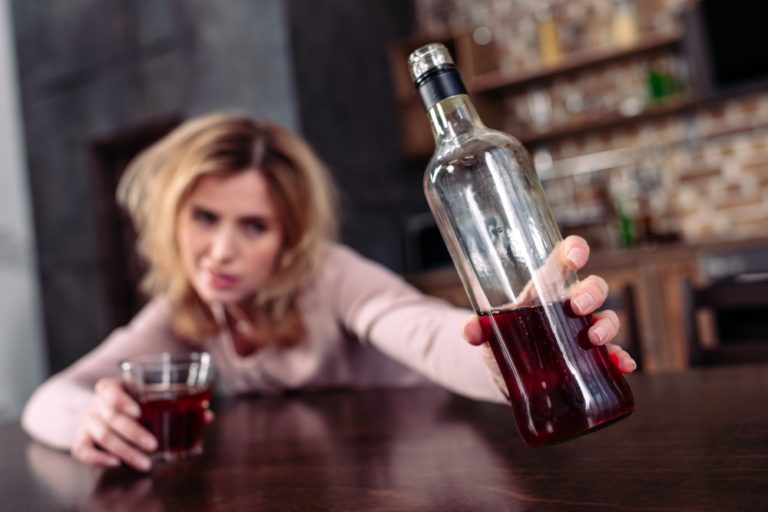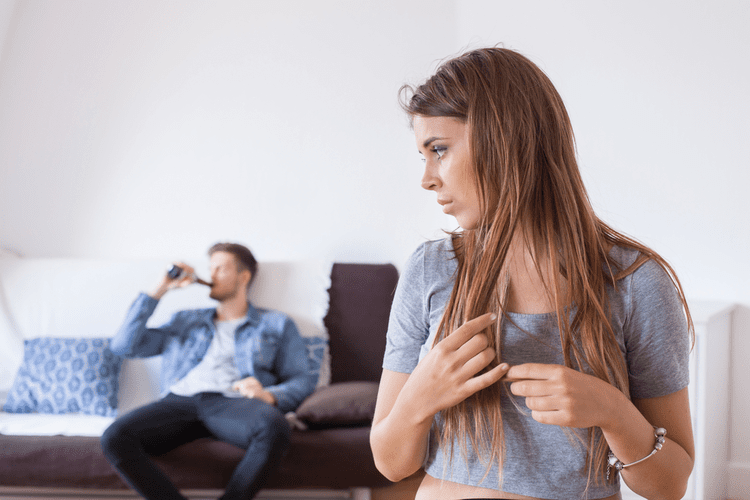It’s important to talk to family and friends to alert them if you have auto-brewery syndrome. This way, if you have a meal high in carbohydrates and begin to experience symptoms of intoxication, they’ll understand why. This is why clinicians are warned to be compassionate toward anyone who comes in who seems intoxicated but says they haven’t been drinking alcohol. The yeast species Saccharomyces cerevisiae and Candida albicans are the most common microorganisms involved in cases of auto-brewery syndrome. The idea that a single strain is the sole cause of auto-brewery syndrome is an oversimplification because the syndrome is more complex, some experts say. You should try getting rid of the feeling if a medical condition is causing it.
How does the liver metabolize alcohol?


” I’m not any different than anybody else that might have a disease and yet I’m treated that way in a court.” “After dinner he would start slurring his speech,” Giannotto recounted. ” I kept saying to his doctors, I don’t know, he kind of looks like he’s drunk.”
When it comes to drinking, there’s a big difference between feeling tipsy and having symptoms of alcohol intolerance. The former is when you get a little loosey-goosey at the bar; the latter is more like you feel sick after sipping on a glass of wine while relaxing at home. People with a high tolerance for alcohol may need to drink greater amounts to feel the same effect. As a result, they may drink more heavily, putting them at greater risk for alcohol-related health issues or physical dependence on alcohol. Your personality can change when you drink due to alcohol’s effects on the brain.
The effect of certain foods
“Like in anything in medicine, you won’t make the diagnosis unless you think of the diagnosis.” Wickremesinghe is getting ready to release the largest study ever on ABS using the patients he’s treated. He treats alcoholism treatment ABS with anti-fungals either orally or, if necessary, intravenously.
Temporary Weight Gain After Drinking Alcohol: What’s Going On There?
This article mentions it being the cause of feeling drunk when you’re sober. So, the more you drink over a shorter period of time, the more alcohol hangs around in your bloodstream. The result is a higher blood alcohol content (BAC) and what does being drunk feel like a higher risk of alcohol poisoning.
Other symptoms may include:
- Understanding the potential reasons behind this perplexing morning state can help demystify the experience and provide clarity.
- But common viral and bacterial infections such as the flu can masquerade as a hangover in the beginning stages.
- Older people, people who have little experience drinking, females, and smaller people may have a lower tolerance to alcohol than others.
- If multiple people in a household experience similar unexplained symptoms upon waking, especially without a working carbon monoxide detector, immediate investigation and evacuation are warranted.
If you have auto brewery disease, your blood alcohol level may range from 1.0 to 7.0 milligrams per deciliter. For toddlers and children, those with short bowel syndrome are at higher risk of getting auto brewery syndrome. There has been a case where a 3-year-old was reported getting drunk after drinking fruit juice because she had short bowel syndrome. For people suffering from auto brewery syndrome, their body shows high blood alcohol concentration after ingesting a small quantity of alcohol or even no alcohol at all.
- In order to balance bacteria in your gut, you may take other supplements such as probiotics.
- The fluctuations in blood sugar that accompany drinking can lead to negative moods, which might include anxiety and anger as well as mood instability.
- Engaging in thrilling activities can also provide a natural high that mirrors the effects of alcohol.
- In fact, one small study on 43 people with NAFLD showed that more than 60% had alcohol-producing bacteria in their gut.
- This can produce the same effects as drinking too much alcohol.
I just drank a lot of alcohol, and I’m not drunk whatsoever, not sure what to make of this discussion
In this article, we’re going to take a closer look at all the potential causes of feeling hungover without actually having anything to drink the night before. If you’ve realised that your body is suddenly intolerant to alcohol, don’t worry—there are steps you can take to manage it and still enjoy your social life. On top of that, as we age, many of us start taking more medications, and some of these can interact with alcohol in ways that further disrupt how it’s processed. The combination of reduced enzyme activity, slower liver function, and potential medication interactions can all add up, making your body more sensitive to alcohol. If you’re experiencing similar changes after starting a new medication, it might be time to have a chat with your doctor or pharmacist. These can amplify alcohol’s effects, making you feel more drowsy, dizzy, or out of sorts after just one glass.


Auto-Brewery Syndrome Complications
- Feeling hungover every morning might be due to poor sleep quality, dehydration, or undiagnosed health issues like sleep apnea or anemia.
- Even a tiny amount of alcohol made by gut yeast leads to symptoms.
- Everybody’s different, and therefore the length of a hangover will vary from person to person.
- Too much yeast inside your intestines or stomach may lead to this condition.
Ideally, a person should not drive after consuming alcohol until it is completely out of their system. The alcohol by volume (ABV) also affects a person’s inebriation duration. ABV is the percentage of pure alcohol within a drink’s total liquid volume. Since it can only metabolize a small amount of alcohol at a time, the rest circulates throughout the body, affecting the central nervous system (CNS) by interfering with the https://calakpendidikan.com/2023/05/12/9-essential-tips-for-throwing-the-perfect-summer-2/ firing of nerve impulses. But if what you think is a hangover lasts for a second or third day, it’s a sign that it might be more than just your typical hangover. This yo-yo effect on your insulin regulatory systems can wreak havoc on your insides.
Why am I coughing blood with kidney failure?
It’s an intriguing subject and sounds almost fantastical, but it is very real for those experiencing it. Auto Brewery Syndrome, also known as gut fermentation syndrome or endogenous ethanol fermentation, is a rare condition that causes intoxication without consuming alcohol. Consult a healthcare professional if the sensation of feeling “drunk in your head” is persistent, severe, or accompanied by other concerning symptoms. Warning signs include sudden onset, worsening intensity, or neurological symptoms like weakness, numbness, or difficulty speaking. Seek medical evaluation if these sensations significantly impact daily activities, balance, or quality of life.


Auto-brewery syndrome is a rare condition that occurs when food ferments in your stomach and produces ethanol, the same alcohol found in alcoholic drinks. The condition can cause you to act like you’re drunk though you haven’t had any alcohol to drink. I (20F) drink spirits- rarely, but when I do it’s about half a bottle-a bottle, so ultimately a decent amount of alcohol- and I’ve noticed that I never really get drunk or affected emotionally. I don’t babble, I don’t become more impulsive, I don’t even get sadder. At some (late) stage I often will be sick and at some stage I’ll get dizzy, but I never ‘feel’ drunk short of that. It’s possible to reduce hangover symptoms by eating food and drinking plenty of water while you’re consuming alcohol, but there’s only so much you can do to avoid one.
Besides, you might get sleep drunkenness by sleeping too much or too little. Spending about nine hours in sleep might make you experience sleep drunkenness more than average. When the concentration of alcohol begins to increase in your bloodstream, you’ll start to feel good. You might feel happy, more social and confident, and less inhibited. This is because alcohol stimulates the release of dopamine and serotonin, which are sometimes referred to as your “feel good” hormones. Alcohol is mainly a depressant, but it actually has stimulating effects when you first start drinking.


